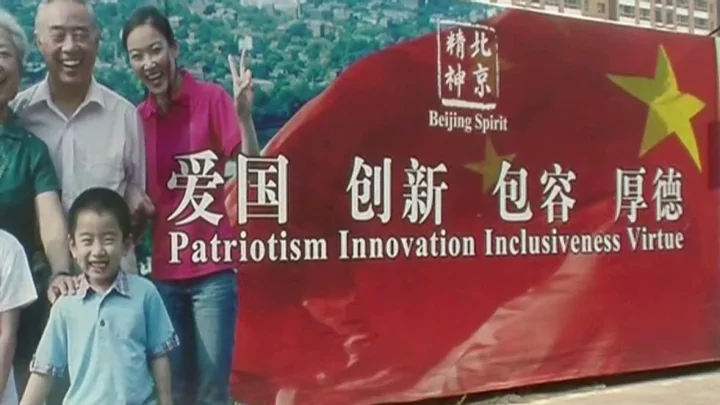

Hong Kong, China, pop. 7.3m • Rich (per capita GDP US$54,000 PPP in 2016) • Safe (lowest murder rate in the world [0.2 per 100,000 pop]) • Clean (corruption free; air, water…) • Educated (96% literate, >15yrs; P4 ranked 2 nd in math; 5 th in science globally; 2-3 universities ranked in top 50 globally) • Healthy (women are the longest lived in the world) • Employed (unemployment rate 2.8%) • Financed (government budget surpluses virtually every year) • Ruled (‘rule of law’; Bill of Rights)
The extradition bill, from Jan 2019 • The need • HK needs extradition arrangements to mainland, Macau, Taiwan • Process • Government: ‘technical amendment’ • Little consultation even with key government allies • Reaction • Opposition from key government allies, local and foreign business, legal bodies, human rights groups, Taiwan • Government: modest amendments and pushed the bill forward • Exclude: ‘white collar’ crime; political crimes; any crime with less than 7 years sentence • Opinion polls: 70% + opposed
The situation • Unreformed colonial-era political institutions meet energized civil society demanding more participation in public affairs • Colonial Hong Kong became HKSAR of China in 1997 • No revolution • No decolonialization • Instead: the colonial ‘through train’….
Landscape in HK, I • Economic marginalization • HK’s declining role in China’s economy • HK’s position • China’s constitution • Basic Law: ‘one country, two systems’ and civil liberties – freedom of speech, association, media, internet, etc. (while Chinese Communist Party attacks liberalism) • CE accountable to central gov’t & HKSAR • ‘independent’ judiciary • CCP’s position in HK (indirect rule) • Political powerlessness • Appointed government • Legislative Council, split constituencies (Sep 2020 next elections) • 18 District Councils (Nov 24, 2019 next elections)
Total Members: 70 Geographical constituencies: 35 Functional constituencies: 35 (e.g., banking, commerce, professions, etc.)
Legislative Council political composition, 2016 Geographic Functional District Council Total Pro-Establishment 16 22 2 40 Pan Dem 13 7 3 23 Localist 6 6 Independent 1 TOTAL 35 35 70 6 Legco members were removed for misconduct: 4 localists Geo; 1 Pan-Dem Geo; 1 Pan-Dem FC In by-elections Pro-estab won 3 seats; Pan-Dems 2 seats
Landscape in HK, II • Civil society • Energized; expectant; organized; resourced
HK’s colonial -era institutions • Economy • Education • Civil service • Political institutions
Colonial-era economy: staggering inequality • Welfare state-type public services (public health, public housing, education) • Low direct taxation (no sales, inheritance, capital gains taxes) • Shortfall made up by land sales (Gov’t owns all the land) • Astronomical housing prices • US$21,000/sqm for <40sqm • Gini coefficient: .48-.53
Our Tycoons: Richest 6 own assets equivalent to 42% of HK’s GDP
‘Conglomerates under the control of the abovementioned families have a stranglehold on some of HK’s economic arteries, namely property, utilities, public bus services and food retail. The rise to power of these economic lords owes a lot to a government that adopts a laissez-faire approach when it so suits them and at the same time actively protects their interests .’ Source: Poon, p. 44.
Colonial-era education system • NGOs, churches run 93% of schools • Elite education in English language • Generally, non-political curriculum (?) • Mainland seen as ‘overseas’, ‘foreign’, other
Private, mostly church-run schools • Teach universal values (human rights, etc.) • Liberal studies • Do not teach mainland- style national, ‘patriotic’ education • Produce HK’s senior civil servants • Results: Successful, popular • Test scores; university admissions
Colonial-era civil service • Divide between senior & junior civil servants • Senior • Recruited from local elite schools • Perceive their role as guardians/trustees, not agents • Hold most political positions in government • Receive pensions • Junior • Perceive their role as serving HK, not the CE • No pensions, more mobile
Unreformed colonial-era political institutions • Ambiguous accountability system • Failed political reform (Occupy Movement, 2014) • Participation: most are disenfranchised, powerless, (CE Lam: ‘No stake in society…’) • Don’t select CE • Legco votes devalued by functional constituencies • Elected representatives removed for misconduct
Question of violence… Growing appetite for violence Among protesters, from June to July no. agreeing that violence was ‘understandable’ grew from 69% to 96% (Lingnan U polls)
Political institutions fail to accommodate demands of society • Unreformed, colonial-era political institutions • Disenfranchise most HKers • Multiple leadership failures (politically inept; not accountable; serve business elite) • Society/protesters demand to participate • Popular expectations • Powerless, alienated
Public Opinion • Mostly supports the protesters (Ming Pao 3/8/2019) • Independent investigation (79%) • Withdraw bill (73%) • Withdraw charge of rioting for June 12 demonstration (59%) • Carrie Lam step down (50%) • Amnesty for protesters arrested (46%)
Beyond HK • CCP’s need for stability on mainland • Dangers of HK unrest spreading • What is HK’s role in China?
Scenarios going forward • Status quo • United front work ( 统一战线工作 ), nationalism campaigns • Policing (repression) • Policing + • Meet some demands of protesters • HK Gov’t to take responsibility: Government/officials ‘reshuffled’ • Independent inquiry • Political reform • Battle for hearts and minds of HK people (mobilizing the united front)
Recommend
More recommend